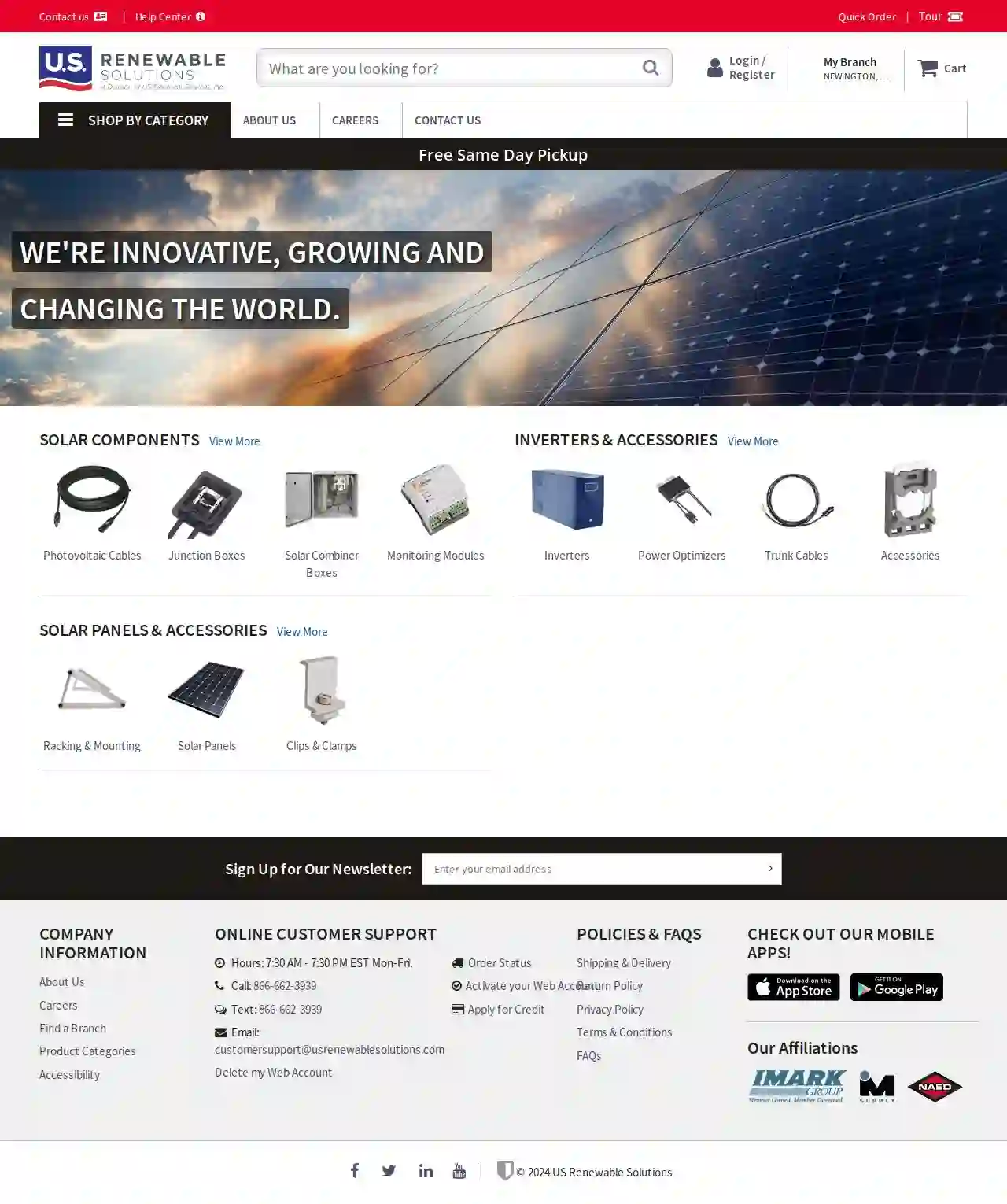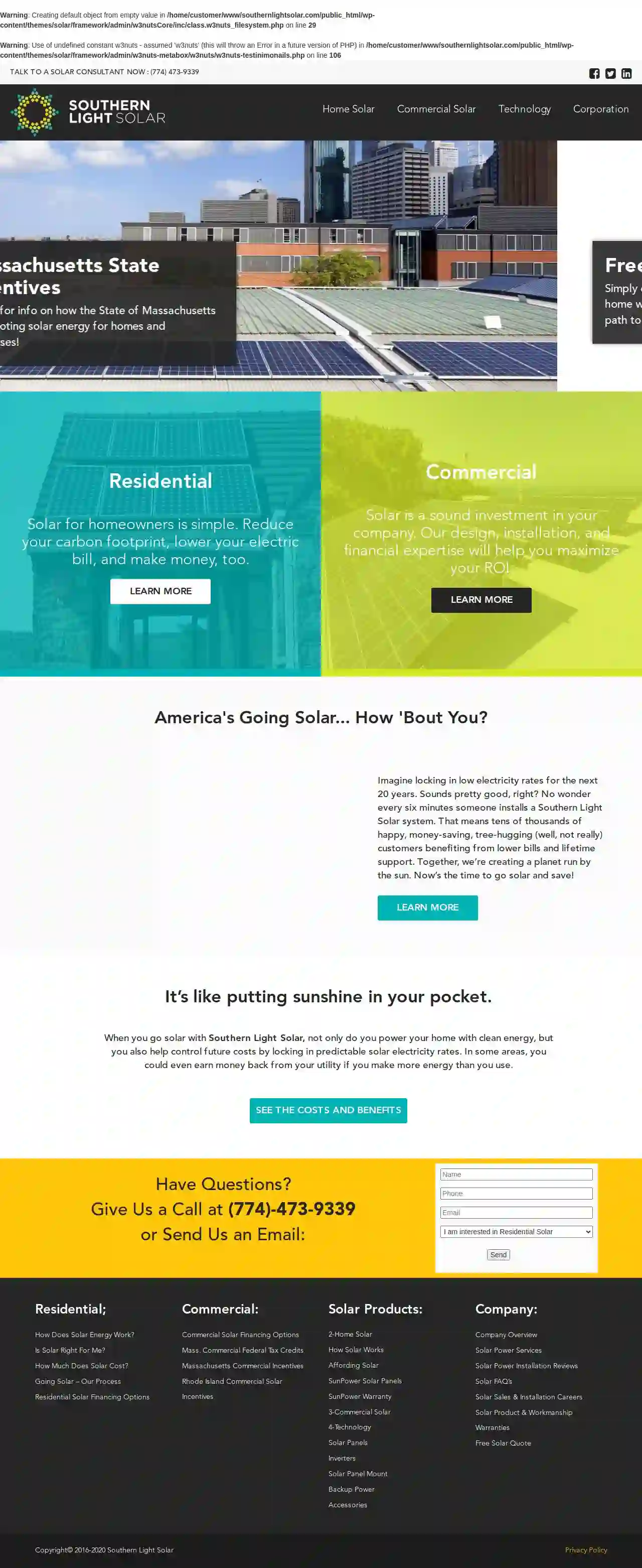Solar Installers Everett
Find top Solar Energy Companies in Everett
Receive multiple Solar Installer quotes for your project today! Compare profiles, reviews, accreditations, portfolio, etc... and choose the best service.

Spartan Solar
52 reviews10 Charles St., Greenfield, 01301, USSpartan Solar is a company that specializes in the installation, sales, and service of solar hot water systems for residential and commercial applications in Western Massachusetts, The Pioneer Valley, The Berkshires, Franklin County, Hampshire County, Southern Vermont, and South West New Hampshire. They offer domestic hot water and space heating solutions and are committed to reducing carbon footprint.
- Services
- Why Us?
- Accreditations
- Our Team
- Testimonials
- Gallery
Get Quote
Nexamp
4.2174 reviewsNexamp HQ, 123 Clean Energy Drive, Boston, MA, 02110, USNexamp is a national clean energy company headquartered in Boston, MA, and Chicago, IL. With offices across the country, we develop, manage, and maintain solar and energy storage assets. Our mission is to build the future of energy that is clean, simple, and accessible.
- Services
- Why Us?
- Accreditations
- Our Team
- Testimonials
- Gallery
Get Quote
U.S. Renewable Solutions
Mansfield, MA, Corporate Headquarters, 800 South Main Street, Suite 104, 02048, USAt U.S Renewable Solutions, we are here to service all of your PV installation needs. With over $5MM of solar material in stock in 4 distribution centers across the East Coast, we are uniquely positioned to provide the equipment that you need, exactly when you need it. Utilizing dozens of trucks to make deliveries from those 4 locations every week day, we have the ability to service markets from New Hampshire to Washington DC, and everywhere in between. We offer a large breadth of inventory and are partnered with the top brands in the solar industry. There is over 15 years of industry knowledge and expertise amongst our team, so we know how to get the job done from start to finish. U.S. Renewable Solutions is a true one-stop shop for all things solar and electrical!
- Services
- Why Us?
- Accreditations
- Our Team
- Testimonials
- Gallery
Get Quote
Solar Rising
538 reviewsMashpee, MA, 348 Main Street, 02649, USSolar Rising is a full service solar installation company with over 40 years of collective experience. We provide solar energy products to homeowners, the highest quality solar products for the most affordable price. We also power businesses with solar panels, which can be one of the best investments to make. Our electrical services include alternative energy solutions for Cape Cod and surrounding areas. We offer battery storage solutions, helping you choose the best battery storage system for your needs. Additionally, we install electrical vehicle chargers at homes and businesses. Our maintenance and repair services include system removal for roof replacement, critter guard installation, equipment repairs, and more.
- Services
- Why Us?
- Accreditations
- Our Team
- Testimonials
- Gallery
Get Quote
Southern Light Solar
3.514 reviews123 Solar Street, Suite 100, Boston, 12345, USSouthern Light Solar is a certified solar power consulting and installation company serving the entire state of Massachusetts. They aim to make solar power both affordable and easy for Massachusetts and Rhode Island homeowners and businesses to own or lease. Their services include residential solar, commercial solar, solar repair, and more.
- Services
- Why Us?
- Accreditations
- Our Team
- Testimonials
- Gallery
Get Quote
SunPower by BlueSel Home Solar
4.79 reviewsBoston, USAccount Suspended This Account has been suspended. Contact your hosting provider for more information.
- Services
- Why Us?
Get Quote
ACE Solar
4.666 reviewsNorth Andover, MA, USA, 16 High St., Suite 300, 01845, USACE Solar is a premier solar power installation company based in North Andover, Massachusetts. They offer a broad spectrum of solar solutions designed to provide environmental and financial benefits to their clients. Their services include residential and commercial solar installations, tailored to meet the unique needs of each client. ACE Solar is dedicated to empowering their customers with the knowledge and tools to transition to solar power seamlessly.
- Services
- Why Us?
- Accreditations
- Our Team
- Testimonials
- Gallery
Get Quote
Sunrun Fusion New England
4.318 reviewsSan Francisco, CA, 77 Beale Street, 94103, USSunrun is the #1 home solar and battery company in America, providing innovative products and tailored plans to help customers take control of their energy bills. With over 900,000 homes and counting, Sunrun offers a comprehensive repairs, maintenance, and monitoring program, ensuring hassle-free solar energy and backup battery solutions.
- Services
- Why Us?
- Accreditations
- Our Team
- Testimonials
- Gallery
Get Quote
Valley Solar
4.9129 reviews123 Main St, Suite 100, Springfield, 01001, USValley Solar is a locally owned and operated solar panel installation company based in the greater Springfield area. They offer personalized service, big capabilities, and are experts in solar battery installations. Their team has passed rigorous energy storage certification exams and has installed hundreds of solar battery systems in western Massachusetts since 2020. They provide a range of easy, zero-down financing options and offer solar leases and Power Purchase Agreements. Valley Solar is an authorized dealer for Enphase, SolarEdge, and Tesla Energy.
- Services
- Why Us?
- Accreditations
- Our Team
- Testimonials
- Gallery
Get Quote
Invaleon Technologies Corporation
445 reviewsSuite 1B, 26 Parkridge Rd., Haverhill, 01810, USInvaleon Solar is a leading provider of solar energy solutions for residential and commercial clients. Our team of experts is dedicated to delivering high-quality solar installations and exceptional customer service. We offer a range of services including solar panel installation, Tesla Powerwall, and EV charger installation. Our mission is to help our clients save money on their energy bills while also contributing to a greener future.
- Services
- Why Us?
- Accreditations
- Our Team
- Testimonials
- Gallery
Get Quote
Over 4,210+ Solar Companies in our network
Our solar experts operate in Everett & beyond!
SolarCompaniesHub has curated and vetted Top Solar Companies near Everett. Find the most trustworthy pro today.
Frequently Asked Questions About Solar Installers
- Monocrystalline: Made from a single silicon crystal, known for high efficiency (typically 18-22%) and sleek black appearance.
- Polycrystalline: Made from multiple silicon crystals, slightly less efficient (15-17%) but often more affordable than monocrystalline.
- Thin-film: Made from thin layers of photovoltaic material, lower efficiency (8-12%) but can be flexible and lightweight.
- Use a Directory Like SolarCompaniesHub: We connect you with pre-screened, qualified solar installers in your area.
- Check Online Reviews: Look for positive reviews on Google, Yelp, and other reputable sources.
- Ask for Referrals: Get recommendations from friends, family, or neighbors who have gone solar.
- Verify Credentials: Ensure the installer is licensed, insured, and certified by reputable organizations (e.g., NABCEP in the US).
- Get Multiple Quotes: Compare quotes from at least 3-4 installers to find the best value for your project.
- Ask Questions: Don't hesitate to ask installers about their experience, warranties, and the process they follow.
- Your current energy usage
- The size of your solar system
- Your local electricity rates
- The amount of sunlight your panels receive
- Available net metering policies
- Analyze your energy bills
- Assess your roof's suitability
- Calculate your potential solar energy generation
- Recommend a system size that meets your needs and goals.
What are the different types of solar panels?
How do I find a good solar installer near me?
How much can I save on my electricity bill with solar panels?
How do I choose the right solar panel system size for my needs?
What are the different types of solar panels?
- Monocrystalline: Made from a single silicon crystal, known for high efficiency (typically 18-22%) and sleek black appearance.
- Polycrystalline: Made from multiple silicon crystals, slightly less efficient (15-17%) but often more affordable than monocrystalline.
- Thin-film: Made from thin layers of photovoltaic material, lower efficiency (8-12%) but can be flexible and lightweight.
How do I find a good solar installer near me?
- Use a Directory Like SolarCompaniesHub: We connect you with pre-screened, qualified solar installers in your area.
- Check Online Reviews: Look for positive reviews on Google, Yelp, and other reputable sources.
- Ask for Referrals: Get recommendations from friends, family, or neighbors who have gone solar.
- Verify Credentials: Ensure the installer is licensed, insured, and certified by reputable organizations (e.g., NABCEP in the US).
- Get Multiple Quotes: Compare quotes from at least 3-4 installers to find the best value for your project.
- Ask Questions: Don't hesitate to ask installers about their experience, warranties, and the process they follow.
How much can I save on my electricity bill with solar panels?
- Your current energy usage
- The size of your solar system
- Your local electricity rates
- The amount of sunlight your panels receive
- Available net metering policies
How do I choose the right solar panel system size for my needs?
- Analyze your energy bills
- Assess your roof's suitability
- Calculate your potential solar energy generation
- Recommend a system size that meets your needs and goals.